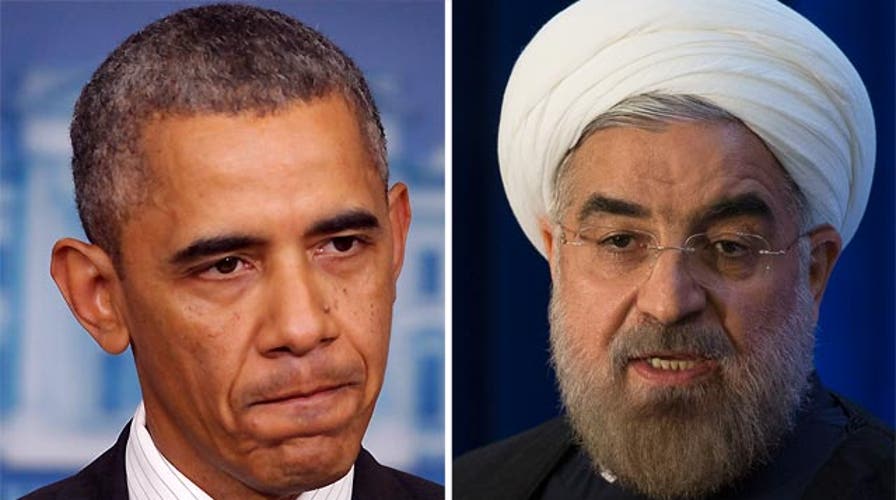Nuclear deal with Iran possible?
'Special Report' All-Star panel reacts in Friday's Lightning Round
President Obama announced Friday that he and Iranian President Hassan Rouhani had thawed a three-decades long freeze in relations through a phone call, making it the first conversation between an American and Iranian president since 1979.
What remains to be seen are the results, if any, of this milestone in communication that has till now been viewed as the end goal.
The two leaders "unfroze" a frozen relationship, but that doesn't mean any warming of temperatures from the Iranian regime.
After the call, Obama said he believes the two countries can reach a “comprehensive solution” on Iran’s nuclear program.
[pullquote]
Based on Rouhani's U.N. address this week, it's difficult to make the same assessment.
In fact, Rouhani and his entourage made certain to make their demands perfectly clear in New York this week.
They will not stop the enrichment of uranium and they want sanctions against their county lifted.
They made no promises to free the two Americans held in Iran or to improve human rights for 75 million Iranians.
They never even bothered to take responsibility for their military and monetary support of the brutal Assad regime or their activity in Syria.
What the Obama administration fails to understand, in their enthusiasm about repaving the path between Tehran and Washington, is that many presidents before this one could have picked up the phone and called leaders in Iran.
They could have shaken hands, sent a courier or even an email or Facebook message to Tehran -- now that we know the mullahs are all "online."
But they chose not to, for one reason: Iran has been politically and economically isolated not because American leaders prior to Obama couldn't pick up a phone but because they understood that diplomacy is a two way street that takes two willing and conceding partners, not just a phone line.

